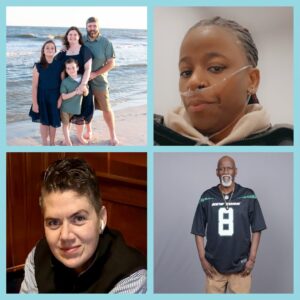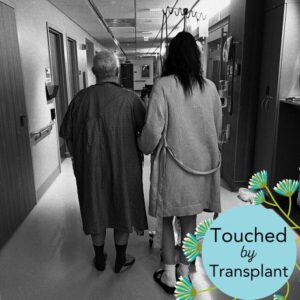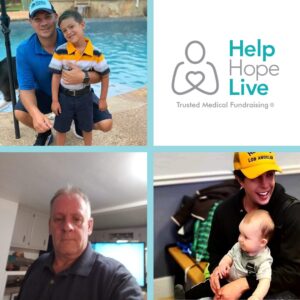As Mobility Awareness Month continues, we hear from Cole Sydnor, who was 16 when a diving accident left him paralyzed from the chest down. Today, almost five years after the accident, loved ones describe him as a fierce competitor, a compassionate friend and a community member dedicated to giving back.

Cole coaches the Richmond Sportable Spokes wheelchair basketball team
Are mobility and independence important to you?
Mobility and independence are important no matter who you are. For me specifically, they are of the utmost importance, because a spinal cord injury can prohibit one from enjoying them freely. It has taken great effort to recover some semblance of the mobility and independence I once had. Now that I have, mobility and independence are allowing me to successfully navigate college and even hold a full-time internship away from home.
How has physical therapy impacted your life?
Without physical therapy, not only would I have an incomplete understanding of what I am capable of, I wouldn’t even have built up the strength to reach that potential.
What financial challenges has your family faced since the injury?
Financially, expenses were centered on making everything accessible. That began with adding an elevator to my house and converting my room and bathroom so they would be completely accessible—all three projects were very expensive. We also had to purchase a truck which could accommodate a specific (wheelchair) lift so that I’d be able to drive.

The financial strain on Cole’s family was “significant” after injury
To this day, any medical expenses deemed unnecessary by insurance fall on my family, and it becomes their responsibility to make those purchases out of pocket. Expenses add up quickly. One current expense is outpatient physical therapy. On top of paying for college, the financial strain has been significant.
How did your community support you after you were injured?
At the time, I was certain that my life had been irreparably changed for the worse. Motivating myself was not enough to get my butt in gear, so I relied on friends and family to help me find that motivation to work towards recovery. I was able to lean on my loved ones whose encouragement was neverending. Without that presence constantly pushing me forward, it’s likely that I’d still be swallowed by despair, doing nothing and helping no one.
Expenses which go uncovered by insurance can rack up quickly. My elevator, room and bathroom renovation, and truck were all expenses that our community rallied to help fund. Without my community, we would have had no shot at those things and more.

Friends and family were a big source of support
Can you describe how it felt to go to college away from home?
Well, I was very nervous and apprehensive about going away to college. What comforted me was the proximity of campus to my home and the fact that my brother was going to be living with me. Like when I was first injured, I really relied on the encouragement and support of my friends and loved ones to make the leap to living on campus.
In hindsight, I was over-worried. The transition was surprisingly smooth, largely due to the very accommodating services of University of Richmond. They put in hard paths where they may have only been an off-road path, moved classes to the most accessible buildings, and placed me in a spacious room centrally located on campus.
What do you think the average person doesn’t realize about spinal cord injuries?
The average person may not understand the extent to which our injuries affect us “behind the scenes.” Most people only encounter people with spinal cord injuries when they are out in public but are never exposed to what it takes for them to shower, dress, use the restroom, etc. Those are the hardest parts about living with a spinal cord injury and unless someone makes an effort to understand, he or she may never realize it.
What are you most proud of?
I’ve been able to raise awareness about spinal cord injuries and spread a message about the importance of diving safety to youth in my community and beyond. A mother told me a story of how her son jumped off a river dock and broke his leg, not realizing that the water was very shallow. She was angry with him, but then he told her, “Mom, I didn’t dive. I remembered Cole’s story.”

Cole is proud of his diving safety advocacy work
What are you looking forward to this year?
First and foremost, I’m looking forward to helping out with a fundraising event which will benefit a foundation that offers private scholarships for varsity or collegiate athletes who have been injured or become chronically ill. Next, I would say graduating from college. After that, if I could land a stable job in my field of interest, I would be stoked.
Most of all though, I look forward to the day that there is a cure for spinal cord injuries. My life would be transformed in an instant, the same way it was on the day I was injured. To me, the word “hope” means that one day I’ll walk again.
Do you know someone who needs community support to live a mobile and independent life after injury? Learn more about fundraising for mobility essentials at helphopelive.org. Mobility matters!
As Mobility Awareness Month continues, we hear from Cole Sydnor, who was 16 when a diving accident left him paralyzed from the chest down. Today, almost five years after the accident, loved ones describe him as a fierce competitor, a compassionate friend and a community member dedicated to giving back.

Are mobility and independence important to you?
Mobility and independence are important no matter who you are. For me specifically, they are of the utmost importance, because a spinal cord injury can prohibit one from enjoying them freely. It has taken great effort to recover some semblance of the mobility and independence I once had. Now that I have, mobility and independence are allowing me to successfully navigate college and even hold a full-time internship away from home.
How has physical therapy impacted your life?
Without physical therapy, not only would I have an incomplete understanding of what I am capable of, I wouldn’t even have built up the strength to reach that potential.
What financial challenges has your family faced since the injury?
Financially, expenses were centered on making everything accessible. That began with adding an elevator to my house and converting my room and bathroom so they would be completely accessible—all three projects were very expensive. We also had to purchase a truck which could accommodate a specific (wheelchair) lift so that I’d be able to drive.

To this day, any medical expenses deemed unnecessary by insurance fall on my family, and it becomes their responsibility to make those purchases out of pocket. Expenses add up quickly. One current expense is outpatient physical therapy. On top of paying for college, the financial strain has been significant.
How did your community support you after you were injured?
At the time, I was certain that my life had been irreparably changed for the worse. Motivating myself was not enough to get my butt in gear, so I relied on friends and family to help me find that motivation to work towards recovery. I was able to lean on my loved ones whose encouragement was neverending. Without that presence constantly pushing me forward, it’s likely that I’d still be swallowed by despair, doing nothing and helping no one.
Expenses which go uncovered by insurance can rack up quickly. My elevator, room and bathroom renovation, and truck were all expenses that our community rallied to help fund. Without my community, we would have had no shot at those things and more.

Can you describe how it felt to go to college away from home?
Well, I was very nervous and apprehensive about going away to college. What comforted me was the proximity of campus to my home and the fact that my brother was going to be living with me. Like when I was first injured, I really relied on the encouragement and support of my friends and loved ones to make the leap to living on campus.
In hindsight, I was over-worried. The transition was surprisingly smooth, largely due to the very accommodating services of University of Richmond. They put in hard paths where they may have only been an off-road path, moved classes to the most accessible buildings, and placed me in a spacious room centrally located on campus.
What do you think the average person doesn’t realize about spinal cord injuries?
The average person may not understand the extent to which our injuries affect us “behind the scenes.” Most people only encounter people with spinal cord injuries when they are out in public but are never exposed to what it takes for them to shower, dress, use the restroom, etc. Those are the hardest parts about living with a spinal cord injury and unless someone makes an effort to understand, he or she may never realize it.
What are you most proud of?
I’ve been able to raise awareness about spinal cord injuries and spread a message about the importance of diving safety to youth in my community and beyond. A mother told me a story of how her son jumped off a river dock and broke his leg, not realizing that the water was very shallow. She was angry with him, but then he told her, “Mom, I didn’t dive. I remembered Cole’s story.”

What are you looking forward to this year?
First and foremost, I’m looking forward to helping out with a fundraising event which will benefit a foundation that offers private scholarships for varsity or collegiate athletes who have been injured or become chronically ill. Next, I would say graduating from college. After that, if I could land a stable job in my field of interest, I would be stoked.
Most of all though, I look forward to the day that there is a cure for spinal cord injuries. My life would be transformed in an instant, the same way it was on the day I was injured. To me, the word “hope” means that one day I’ll walk again.
Do you know someone who needs community support to live a mobile and independent life after injury? Learn more about fundraising for mobility essentials at helphopelive.org. Mobility matters!











